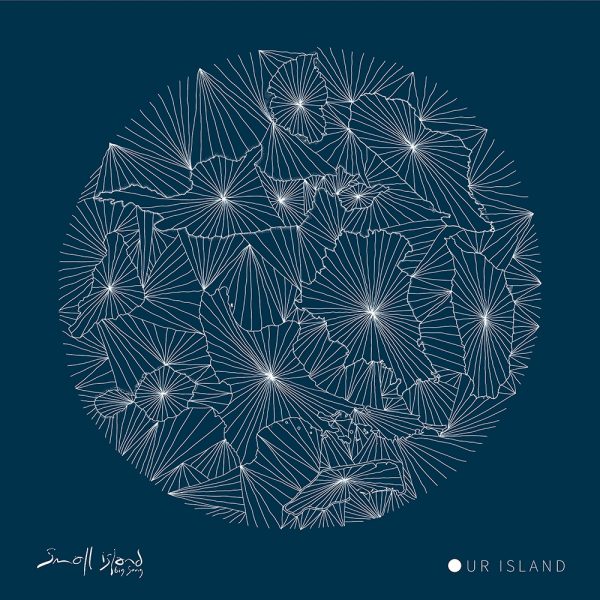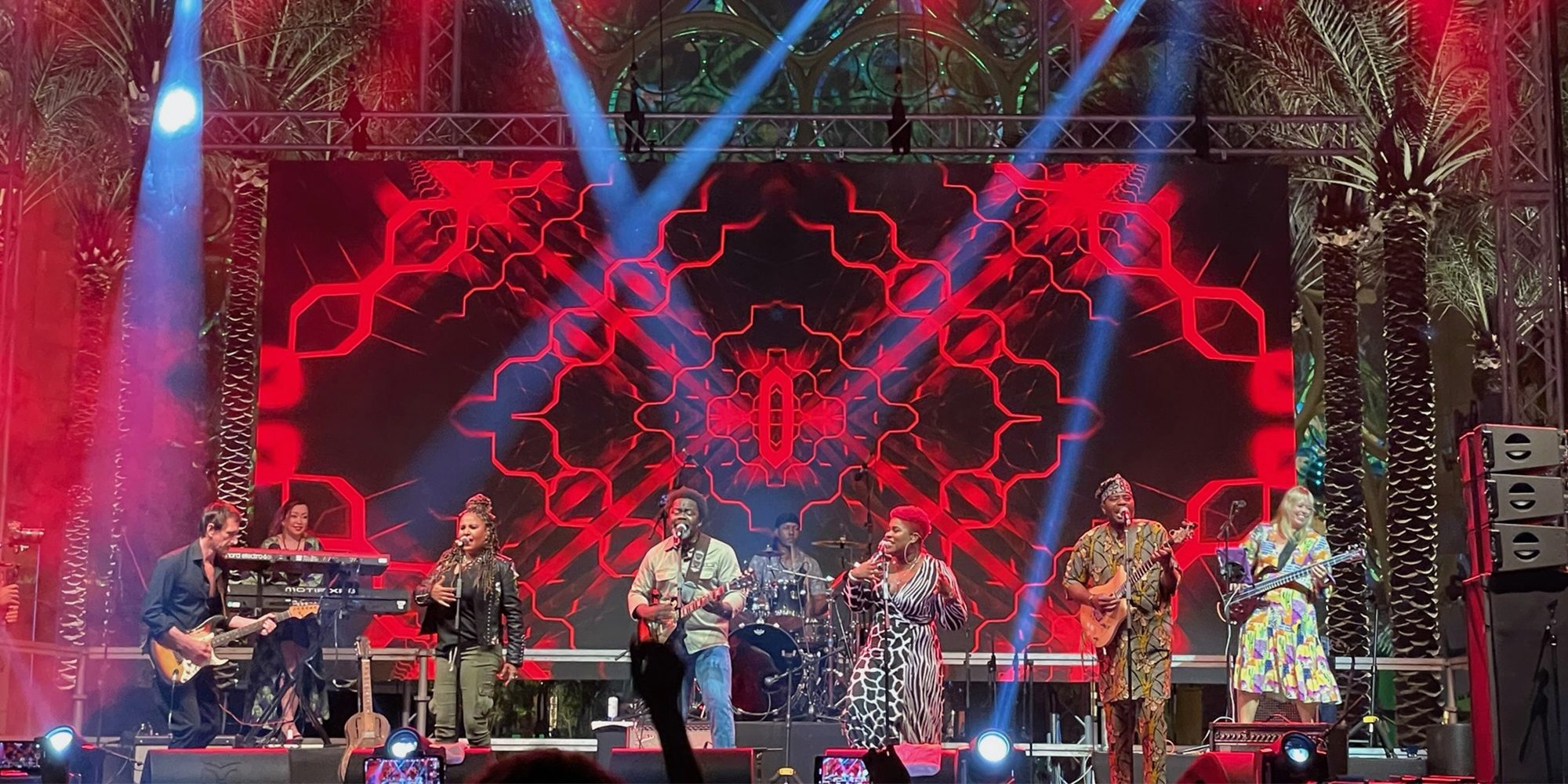If you’ve never watched a Playing For Change video, you’re in for a treat. For the past 20 years, this creative ensemble co-founded by Grammy Award-winning producer/engineer and film director Mark Johnson has been touring the world recording and filming songs—famous and formerly unknown—with musicians and ensembles, layering tracks in eye-catching settings and mixing them together in a technique they call “Around the World.” Playing For Change has worked in over 60 countries and combined the sounds of hundreds of musicians, most of whom have never met one another. Through this process the Playing For Change Band formed as a rainbow-sonic collective of optimism, uplift and buoyant musicality.
For all this achievement, the Playing For Change Band has never released a band album, until now. The Real Revolution dropped on June 24, 2022. And that day, Afropop’s Banning Eyre reached five of the band members in a hotel room in northern California for a chat. On the Zoom call were Mark Johnson, Claire Finley, Mermans Mosengo, Robin Moxey and Courtney “Bam” Diedrick. Here’s our conversation.
Banning Eyre: Great to meet you guys. I saw the band live years ago at Central Park SummerStage, and I have watched your amazing videos over the years, and now, I am enjoying this album. But for our readers, I'd like to get a little history. What's the story of Playing For Change?
Mark Johnson: Well, I'm the co-founder of Playing For Change. This is actually our 20th anniversary. So 20 years ago, we had the idea to take the studio to the streets. We wanted to bring the exact same recording equipment we would use in the studio with musicians like Paul Simon, take it outside, record and film musicians in natural environments all over the world. The idea is to show people that no matter how many things in life divide us, they are never going to be as strong as the power of music to bring us together.
And you learn some amazing lessons. The things in life that make us different make us stronger. And the same thing is true in music. So this is a project about showing people how we share the planet. We're all here together, and music is the best tool to bring us all together. So for the past 20 years, we’ve traveled the world, in about 65 countries, recording and filming musicians. We make songs around the world. We assemble some of the best musicians from the videos who have never met. And all these great musicians with me here have become the Playing For Change Band. We tour around the world and become a tangible example of this project right in front of you. You hear all these different cultures and different languages coming together through the music.
And we also have the Playing For Change Foundation. We build music and art schools all over the world. We have 17 schools. All the schools are free. They're all run by their communities. So really, it's a movement of people around the world through music, and I'm just happy to be here celebrating with these great musicians.
That's a great summary. So are you guys on tour now?
Yes, we are up in Northern California playing at the Kate Wolf Music Festival. It's the 30th anniversary of the festival, so we got to bring the whole band. Then we’re going out to do a couple of concerts in Mexico. So it's just a short tour, bringing the message everywhere we can.
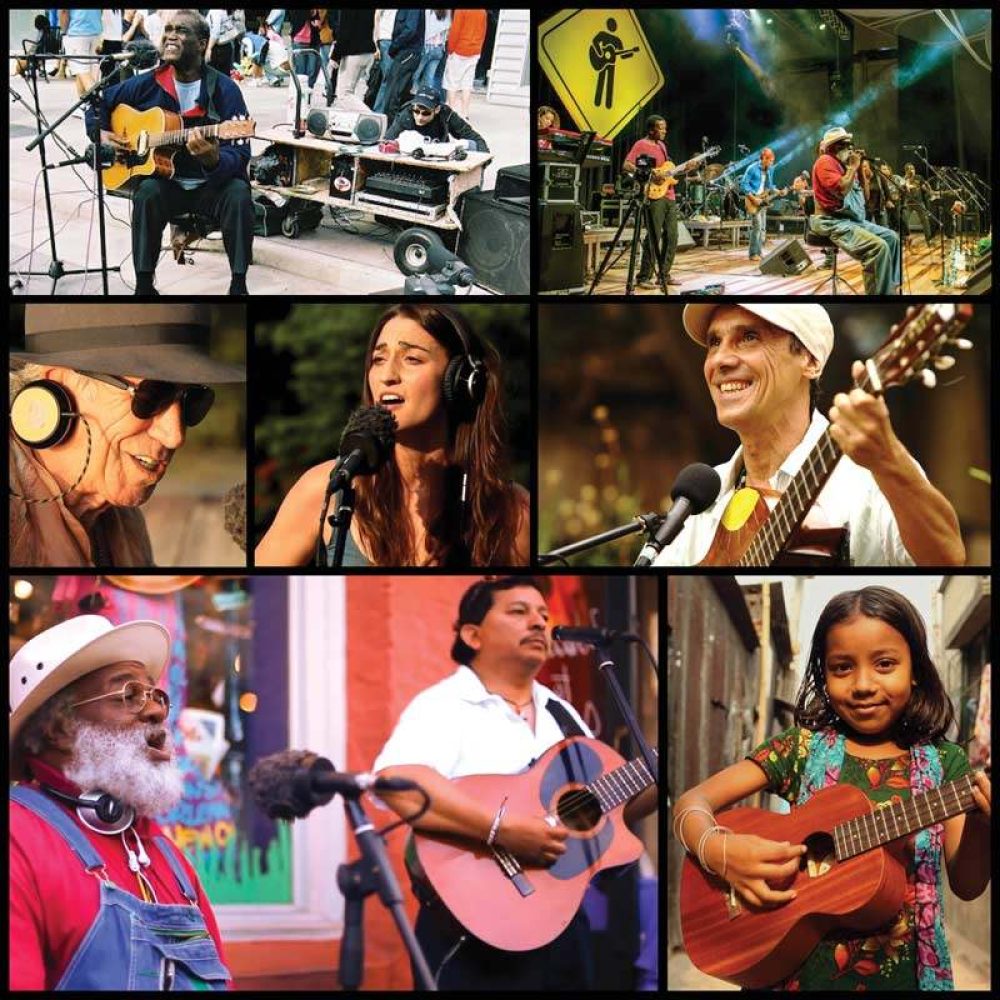
I get the impression that the band has a revolving lineup. If you were all together in one place, how many people would it be?
I guess the whole band would be something like 15 musicians from about 12 different countries. But then we can work with choirs and other ensembles. When we played at Glastonbury, I think we had about 70 musicians on the stage. But this is the core group, Playing For Change Band, and a portion of them that played on the album. We try to keep a consistent core group and then add guests as we travel. You just have five of us here, because we couldn't fit everybody in one hotel room.
Cool. So let's just go around and hear bit from each of you. Tell us a bit about yourselves.
Claire Finley: I am the bass player in the Playing For Change Band. I am originally from Iowa, and I've been living in Key West Florida for eight years. I first met Mark and Playing For Change when I was playing a private show with Jimmy Buffett. They saw me on stage and asked me to be part of A Song Around the World. They came to Key West and they filmed me for two different ones, "Soul Rebel," and "Dock of the Bay 50th anniversary." Shortly after that, they invited me to joined the band. So I joined the band in 2018, and it's just been amazing. We’re playing music from all over the world with people from all over the world. It is always a challenge learning different styles that you might not be familiar with, but it's super rewarding, and we've just become great friends. It's like a family affair at this point.
I imagine so. Mermans, how about you?
Mermans Mosengo: Well, I’m from the Democratic Republic of Congo…
One of my favorite countries for music. I have visited twice, the first time all the way back in 1987.
Yeah, mon! So I met Mark and the crew in 2006, Cape Town, South Africa. I had moved there eight years earlier. We spoke about Playing For Change, and about recording. I joined the team in 2009 and we started touring the whole world and spreading a message of unity, peace and music.
I'm curious about your musical life before all that. Did you play in Congolese bands before you moved to Cape Town?
My story is very long. But I will make it short. In Congo, first of all we don't really study music. We learn from the radio. I think you know that. So I was one of those kids who would make their own guitar and then start to listen to the radio and try to follow. But the singing part was natural because my mom was into singing. So I could sing from a young age, and then I started playing some guitar. I got my matriculations in 1990, and then my father died, so I wanted to do more music, because there was no way I could continue my studies. So I started doing that, but my mom gave me a lot of trouble because she wanted me to continue school, even though she didn't have enough money to support me.
That fight got to a level where I had to leave the country. So I smuggled myself from Kinshasa to Brazzaville to Angola to Namibia to South Africa four years later. That was 1994. And in 1998 I was in South Africa and I started by busking at a restaurant. Eventually I saved up some money and started a band called Afro Fiesta, and everybody joined in.
Then Afro Fiesta met Playing For Change eight years later in a place called Mama Africa where Playing For Change went for a dinner. They found us singing “Stir It Up” of Bob Marley, because I love reggae.
So you sing and play guitar in the band now.
That's right. I sing and play guitar.
Great. Who’s next?
Robin: I am Robin Moxey. I have been in the Playing For Change Band for about five years. But I have worked with Playing For Change for the entire 20 years. Mark and I used to make albums together before Playing For Change. So we had made a lot of music together. But with this project we came together recording “Stand By Me.”
Mark can tell you stories about that, but it's my guitar in the video. That guitar is way more famous than me. I'm now into legal things with the guitar. [Laughter] But yeah, playing in this band has been one of the most amazing musical experiences I've ever had. Getting to learn about and experience things that not many people get to do, playing with so many people from so many different places at once. Your musical vocabulary expands immediately. And I can also say hello and goodbye in a lot of different languages.
I know I will never get to have an experience like this at any other time and place in my life, so today, releasing a record, which I actually wrote songs on and produced is a very special day. And to get to be here and perform tonight with the band at the Kate Wolf Festival is a dream come true.
Thanks. O.K., Courtney.
Courtney “Bam” Diedrick: I'm from Jamaica. I met Mark Johnson more than 10 years ago. I also play with Damian Marley, and we had a show in L.A. where Mark Johnson was the engineer in the studio. He told me, "Hey, man, I have worked with a lot of drummers. But I've never heard the drum sounding like this." I thought he was just like any other engineer would come to you and say, you sounded good that day. But he was different. He told me about this project he was working on, which was Playing For Change. He told me he was going to come to Jamaica and do some filming, and I thought, “O.K., let's see if that's true."
Then a couple of months later, he called me and said, "Hey, I'm coming to Jamaica. Let's hook up and make some music together." He came here, and from there it was history. Touring has just been awesome, a mystical experience, you know?
I noticed that you guys recorded some of the music at Tuff Gong in Jamaica, and overall, it's a very reggae-focused album. Tell me the story of this album how it came about?
Mark: Yes. We started this album around six or seven years ago. Because the band is so hard to assemble, so we can only record whenever we can get a gap when we are touring around the world. We probably recorded this in about five different studios. So we were spending some time at Tuff Gong and Mermans was really the bandleader and he was working on some songs, also with Jason Tamba from the Congo. I think when you put them together with “Bam” and we went into Tuff Gong, things just kind of went in the direction of a reggae album. But it's more of an Afro- reggae album, but there are lot of African concepts in there too.
The other great thing about reggae music is that there's something about saying important things in that music. You know, Mermans actually played on our version of "One Love” around the world, as well as "Stand By Me." When you say important things over the reggae rhythm, it just makes people feel good about it. So we were trying to take all these lessons we've learned around the world and put them into this album. Because everywhere you go, people are the same. They want love, they want peace, they want their kids to have a nice life. The world is really much more connected than divided, and reggae music lets you send that message in a simple way, and people feel it. It's not so much talking; it's a lot of feeling. So for us it just felt like that was a good direction to take the album.
Obviously, we play all kinds of music, but this sort of roots reggae, Afro-reggae concept, adding some blues to it with Robin and Roberto Luti on the slide guitar, it becomes Playing For Change, but it started with the roots reggae concept.
I think reggae is about as universal a form of popular music as there is now. I was recently in French Polynesia where it is the dominant popular music style. I gather that goes back to Bob Marley's tour there in 1979. Those Pacific islands never got over it.
Mark: Amazing. Yes, reggae music is everywhere. It's simple, and everybody can feel it. You feel good while you’re hearing it.
You know, that concept keeps coming up in interviews. I interviewed Femi Kuti recently, and he was talking about putting “a bitter pill in a sweet sauce."
Yes. I love that.
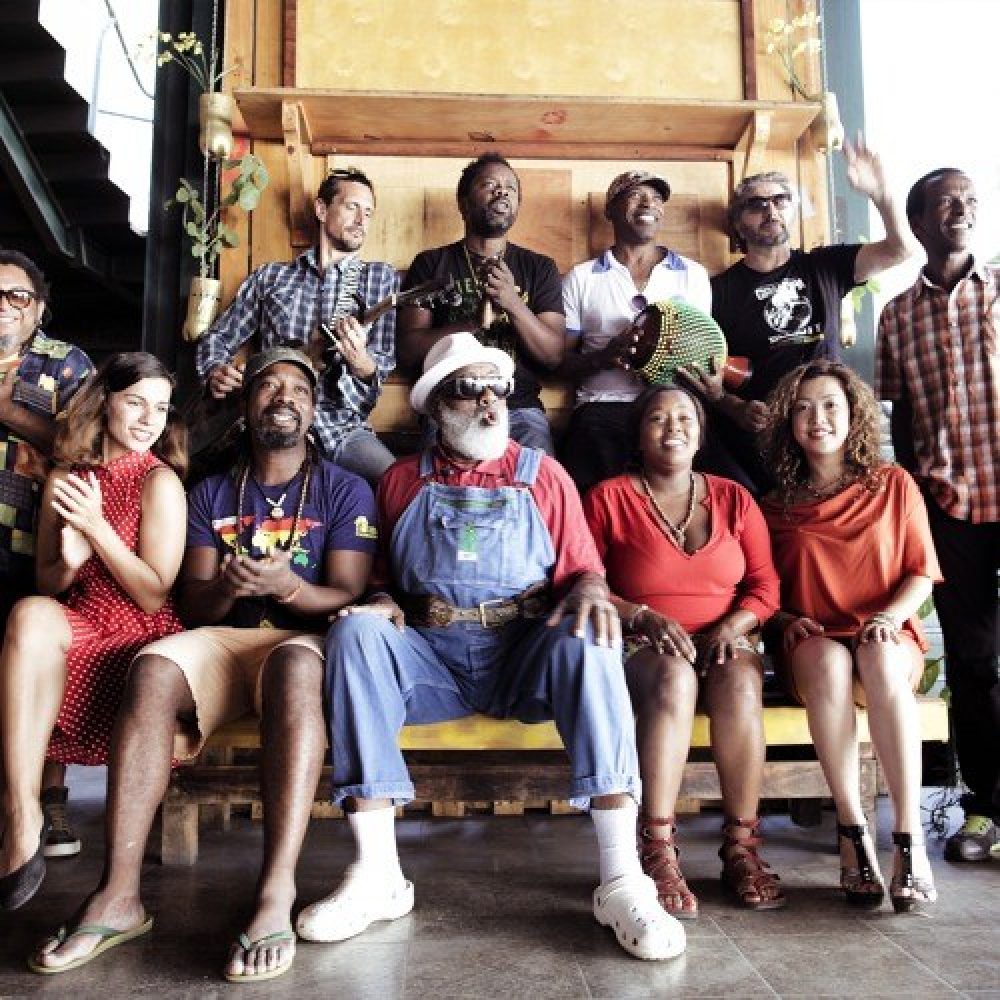
Let's talk about some of the songs, starting with the title song, "The Real Revolution."
Mark: “The Real Revolution” is a song I wrote with Mermans. Really, it was based on a Lee Scratch Perry vinyl that we were listening to, and just kind of thinking about the people that think they can get away with hurting the masses, you know, the people in charge of the world that hurt so many others. There are wars everywhere. Starving children. The environment’s on fire. And the people that make these decisions are never going to be O.K. So I guess our idea was: love is the real revolution and you can't run away from it. I think that once we made that first step on the song and went into the studio, these guys took it in an amazing, deep direction.
The song “Bibamba” has more of a Congolese flavor to it. Tell me about that song.
Mermans: Well “Bibamba” is a song written by Jason Tamba. It's about a man whose pants have holes in them, and when he's walking, people can see through the holes. So he puts patches on his pants. The idea of the song is you need to use whatever you have wisely. Anybody can be poor, or they can be rich, but when you don't know how to manage your finances or other things, you will end up bibamba. That's the message. Be vigilant. Be focused on the things that you do.
Mark: Keep your mind!
Nice. You do a wonderful cover of Toots Hibbert’s “54-46 That’s My Number.” Why did you decide to cover that one?
Mark: Well, you know, we had worked with Toots, the legend. He actually played one of our first concerts with the Playing For Change Band, when we built one of our first music schools. Then we did a version of "Reggae Got Soul" around the world with Toots. We went to Kinshasa with Mermans to get the horn parts. Taj Mahal played on that, so it was Taj and Toots together.
So I think we just hold Toots in the highest regard. He's one of our musical heroes, and people. Mermans has always done great versions of all different Toots songs, but that one, “54-46 That’s My Number,” seemed to gel really well with the band. Robin with his amazing vibrato guitar, Claire holding down the bass, and of course “Bam” Diedrick on the drums. Everything just kind of glued together, so we thought, “Let's just put one cover on there and make it a tribute to our hero.”
Mermans: I want to say one thing about this. I never knew Toots my whole life until that tour in 2009 when he came and played with us. After we did the sound check with him, he came to me in the dressing room and he asked me, "You burn?” I was like, "Oh yeah, oh yeah.” And then he pulled out this big spliff and burned and burned and burned, and then I was the highest guy on that show. [Laughter] And then I followed him through my life. He became such a thing in my life.
That is beautiful. We're working on a retrospective program about Toots’s life for Afropop Worldwide. It will air in September. Mermans, I find it interesting that you come from the Congo and became such a reggae fan. For me it was the other way around. I was deep into reggae by the time I went to Kinshasa in 1987. Then I fell in love with Congo music.
Mark: We went to Kinshasa to record TPOK Jazz in 2013. We also love Congolese music and Congolese people.
Congo! Talk about a bitter pill in a sweet sauce. Such a tough country, but man, music doesn't get any more joyous than that. Any other songs you want to tell me about on this album?
Well, we have two of the songwriters right here. The album drops today, and the first single is by Claire Finley. The song is called "Run," so maybe she can tell us about that.
Claire: I wrote “Run" with my friend Jason Lamson in Key West, Florida, and with the help of Robin Moxey. It's a song that focuses on running towards the good in life. A lot of times people get caught up in bad things that they may have experienced in life, and they dwell on it. So just forget about all that and focus on the future and the good that's coming your way. So that's kind of the basis of the song. And we thought, “Hey, this is pretty catchy.” We played it for Mark, and Mark really liked it. The band liked it, and then the horn section wrote this fabulous horn line that opens the song. It's one of the first songs I've ever been a part of writing, so to have it on such an amazing album is a lifelong dream. Very cool. So today is the day.
Mark: We got the legendary Lee Oskar from War to play the harmonica on the track, and a couple of other songs on the album too.
Mark: Robin Moxey wrote a couple of songs on the album. One of them is “Right Foot Forward.”
Robin: Yeah, “Right Foot Forward.” That one came about in Jamaica. We got to stay at a place called Golden Eye, where we were privileged to sit with Chris Blackwell, and he told us the story about how Sting went down to this place called Button Beach and wrote like all the hits for the The Police in sort of two or three days. As soon as I heard that, I said, "Tomorrow morning, I'm going down there. And hopefully the muse will visit." I went there and had some wine and other things, and just started doing the thing and it all came in about 20 minutes.
I was doing it really quietly because it was early in the morning, and then the first time I sang it at full volume, I hadn't seen that the bar was being set up behind me by these cats, these Jamaican guys. And I'm singing, “You put your right foot forward, and you toe the line." And from behind me, these guys who had been listening to me write it, go “Toe the line,” like they're the backup singers. There's the magic. The next day I played it for Mark, and we wrote the rest of it. I played it for Courtney, and then we got to record it around the world for this album. Some of the horns were done in hotel rooms. The tuba that opens the track was done in New Orleans. So you get the gumbo, the salsa, the sauce that goes around this. And I think that's the Playing For Change sound. Dixieland, reggae and little bit of country, and mix that together, and you put your right foot forward.
Very nice. That one seems to go nicely with the message in “Run."
Claire: Absolutely. Forward thinking, optimistic songs.
Robin: Right foot forward thinking.
There's one song that has more of a Latin flavor.
Mark: “Mi Pierdo.” That one was written by Pierre Minetti. He is an amazing songwriter and also one of the first musicians we recorded around the world. We did his song called "Don't Worry” around the world.
So Tula Ben Ari from Israel has been in many of our videos. She's been in the Playing For Change Band from the beginning. She is an amazing singer and percussionist. She took the song and adapted it to the Playing For Change style. That version that we did on the album features a musician named Twanguero, an incredible guitar player from Spain, along with Mermans Mosengo. They play that opening part. And then in the Playing For Change spirit, we thought, “Let's just add mariachis to the Latin reggae.” Did you know that you can put mariachis and steel guitar on anything. We found that out.
To us, world music is the world playing music together. When I was growing up, world music was whatever wasn't American or British. But the truth is world music becomes all these cultures taking their experiences and putting into what they play and putting that together. And then you have people that like this who make it inspiring. It’s all about persevering, and that's exactly in tune with where we are at in the world. So I think this is a cool time to release this album and show people that we’re all in this together.
My favorite definition of world music comes from Ben Mandelson in the U.K. World music is “local music, not from here." It works everywhere you go. [Laughter]
Mark: I’m going to use that one.
So what's the plan for this year? I imagine that like so many artists you're feeling at least tentatively liberated as we are all trying to become post-covid.
Mark: It is an amazing time. We are all back together, so that's a dream. We’re playing music live. We are also doing a bunch of new songs around the world. And will be doing some special things to celebrate our 20th anniversary. Pretty soon we’re going to be releasing a video honoring the life and legacy of our hero Grandpa Elliot. He's been in the Playing For Change projects since the beginning. He played on the streets of New Orleans for 65 years, toured the world with us. Grandpa passed away this year, so we’re putting together a tribute for him. Then we’ll just continue to record, film and connect everybody we meet, do more tours and build more schools.
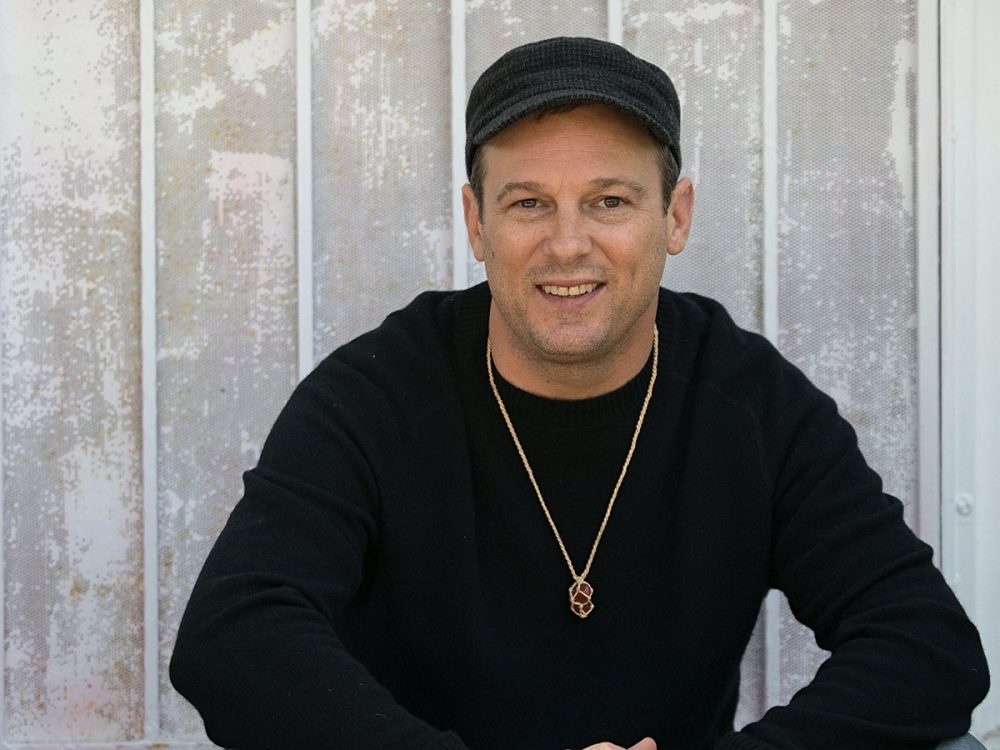
Tell me about those schools. How do you fund them?
The schools are funded in all different ways. A lot of them are funded by the local communities, also just traditional fundraising techniques like campaigns and galas and things like that. Because the Playing For Change videos reach so many people around the world, you are able to bring everybody together on this kind of stuff. People from one country can help people from another country build a school. That's what's so amazing. It doesn't take much if we all work together. That is the whole point of this thing. Our schools are basically about connecting one heart, one song at a time, and we don't care if they're great musicians, but we know we're going to make better people because they learn about the world through the lens of music and art, which brings compassion, empathy, inspiration.
I know that your work has inspired a lot of other people. Are you familiar with the Small Island Big Project?
No?
It’s a collective of musicians from Indian Ocean and Pacific Ocean islands collaborating on songs that mostly deal with environmental issues. They make fantastic videos very much using your same technique. You should check them out. You are kindred spirits. It's beautiful stuff. They just did a tour here that had fabulous video as part of it, and great music. I think they're touring in Europe right now.
Mark: That's amazing. Please thank them for us.
Well, it's great to meet you guys. We’ll be watching. Do you think you'll be in the New York area anytime soon?
I'm not sure. But we will be in touch with you forever.
Sounds great. Have a fantastic show tonight.
Thank you so much. We appreciate your support.
Related Articles
